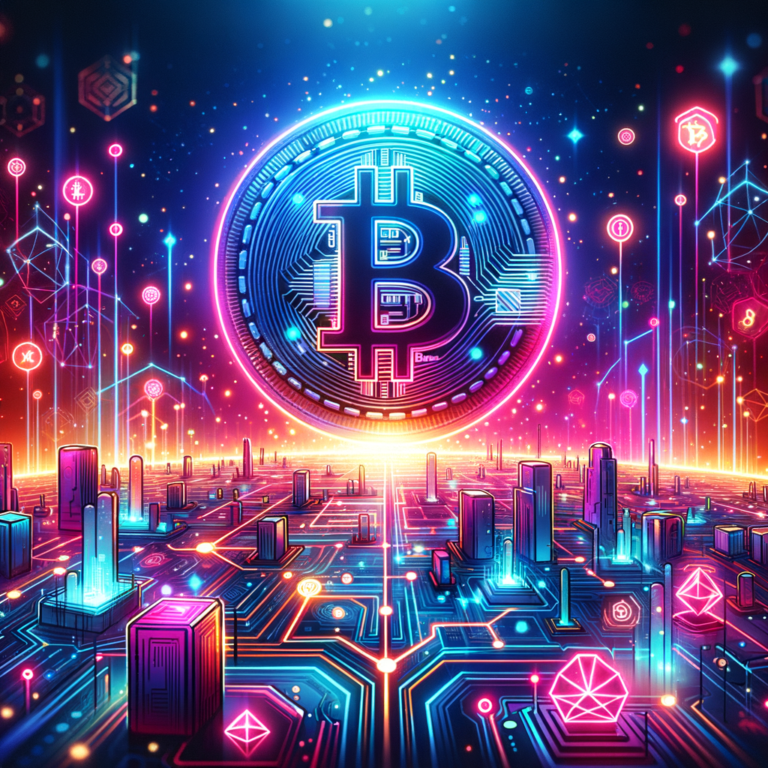Exploring Smart Contracts in NFT Gaming & Asset Management
The rapid evolution of blockchain technology has ushered in groundbreaking developments in various sectors, with smart contracts at the forefront of this innovation. In the realm of gaming and asset management, Non-Fungible Tokens (NFTs) have redefined traditional models, making digital ownership and monetization more transparent and secure. This article delves into how smart contracts are revolutionizing NFT gaming and asset management, exploring successful applications, inherent challenges, and future trends that are shaping this dynamic landscape.
Introduction to Smart Contracts
Smart contracts are self-executing contracts with the terms of the agreement directly written into lines of code. The blockchain hosts these contracts, ensuring that they are immutable and distributed, which means no single party has control over the entire network. This technology automates transactions and enforces agreements without the need for intermediaries, which reduces costs and increases efficiency. Originally popularized by Ethereum, smart contracts can now be deployed on various blockchain platforms, each adding layers of functionality and security.
The Rise of NFTs in Gaming
NFTs have transformed the gaming industry by enabling players to own unique assets within games, such as skins, characters, or even virtual land. These digital assets are verified on the blockchain, providing proof of ownership and authenticity. The scarcity and unique characteristics of NFTs have driven their value, creating a new economy within the gaming world where players can buy, sell, or trade assets in a secure manner. Games like “Axie Infinity” and “Decentraland” have pioneered this model, demonstrating significant financial opportunities for players and developers alike.
How Smart Contracts Enhance NFTs
Smart contracts enhance NFTs by automating key operations such as sales, transfers, and royalty distributions. This automation ensures that creators can receive a percentage of sales whenever their NFTs are sold on secondary markets, a feature hard-coded into the NFT’s smart contract. Moreover, smart contracts provide a layer of security and trust as all transactions are transparent and immutable, making it nearly impossible to alter ownership records or duplicate assets fraudulently.
Case Studies: NFT Gaming Success Stories
“Axie Infinity” has emerged as a standout in NFT gaming, with players breeding, raising, and battling creatures called Axies, represented as NFTs. This game has not only provided a fun and engaging platform but also a sustainable economic model for users in various countries. Another example is “CryptoKitties,” one of the first blockchain games to popularize NFTs, allowing players to buy, collect, breed, and sell virtual cats. These cases underscore the potential for NFTs to create not just games, but entire ecosystems where value is generated and exchanged within a community.
Asset Management Through Smart Contracts
Smart contracts are revolutionizing asset management by automating and securing the process of managing portfolios. These contracts can execute trades and rebalance portfolios based on predefined criteria, without human intervention. This automation reduces the potential for errors and ensures that strategies are executed precisely. Moreover, the transparency provided by blockchain technology means that asset ownership and transactions are verifiable, reducing the risk of fraud and enhancing trust among investors.
Challenges in Smart Contracts and NFTs
Despite their benefits, smart contracts and NFTs face significant challenges. The rigidity of smart contracts can be a drawback; once deployed, they cannot be altered, which means any bugs or vulnerabilities in the code can be exploited, as seen with the DAO attack in 2016. Additionally, the environmental impact of blockchain technology and the scalability of networks are concerns that need addressing to sustain the growth of NFTs and smart contracts.
Future Trends in NFT Gaming and Assets
Looking ahead, the integration of AI and machine learning with smart contracts could offer more dynamic and intelligent contract management, enhancing personalization and efficiency in NFT gaming and asset management. Furthermore, as interoperability between different blockchain networks improves, there will likely be a surge in cross-platform NFTs, expanding the possibilities for gamers and investors. The potential for NFTs to be used in broader applications, such as digital identity and licenses, also presents exciting opportunities for future growth.
Conclusion: The Impact of Smart Contracts
The impact of smart contracts on NFT gaming and asset management has been profound, offering unprecedented security, efficiency, and opportunities for monetization. While challenges remain, the continuous improvements in blockchain technology promise to further enhance the effectiveness and applications of smart contracts. As we move forward, the synergy between NFTs, gaming, and asset management through smart contracts will undoubtedly lead to more innovative and robust economic models, reshaping how we perceive and interact with digital assets.
In conclusion, smart contracts serve as the backbone of the burgeoning NFT landscape, significantly influencing both gaming and asset management. By ensuring automated, secure, and fair transactions, they facilitate a new era of digital interaction and commerce. Despite facing technical and ethical challenges, the future of smart contracts in NFTs looks promising, driven by technological advancements and an increasing embrace by mainstream industries. As we continue to explore and optimize these technologies, their potential to redefine digital ownership and economic models will only expand, marking an exciting chapter in the evolution of blockchain technology.

